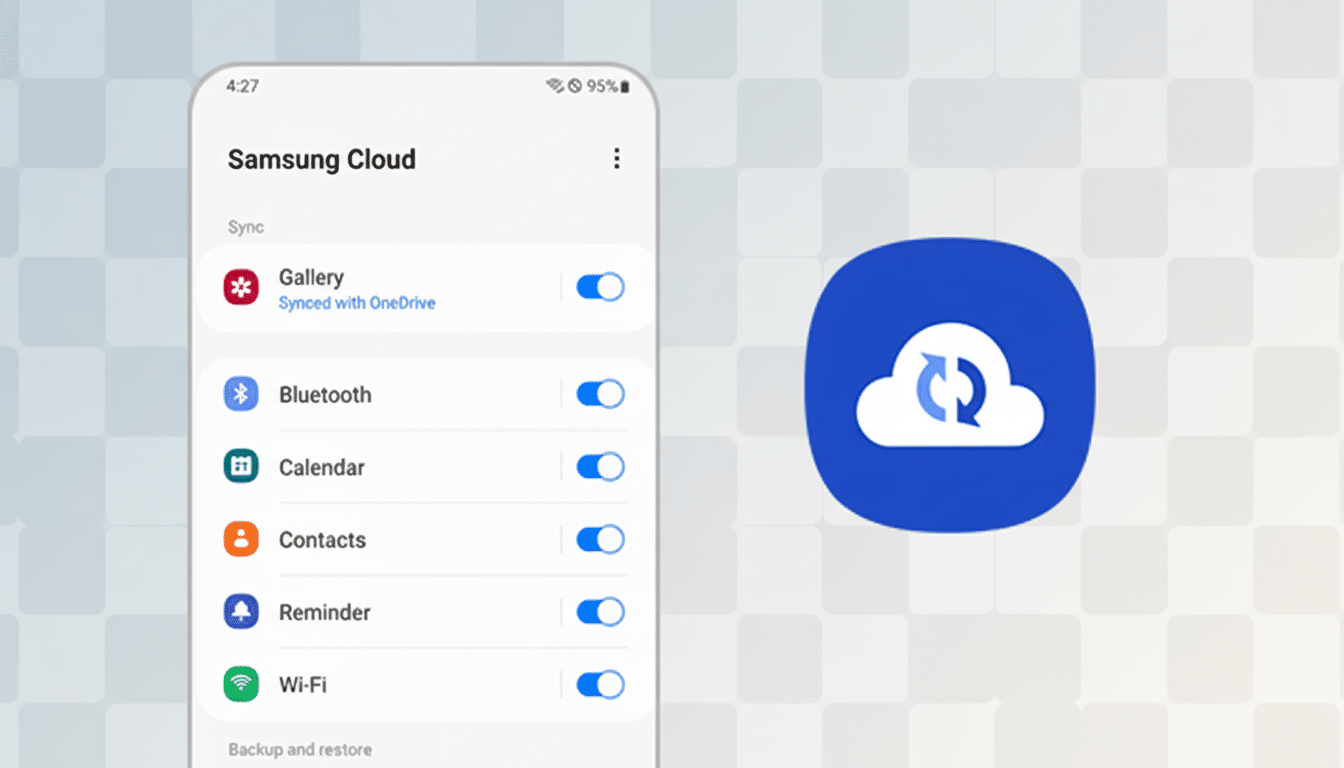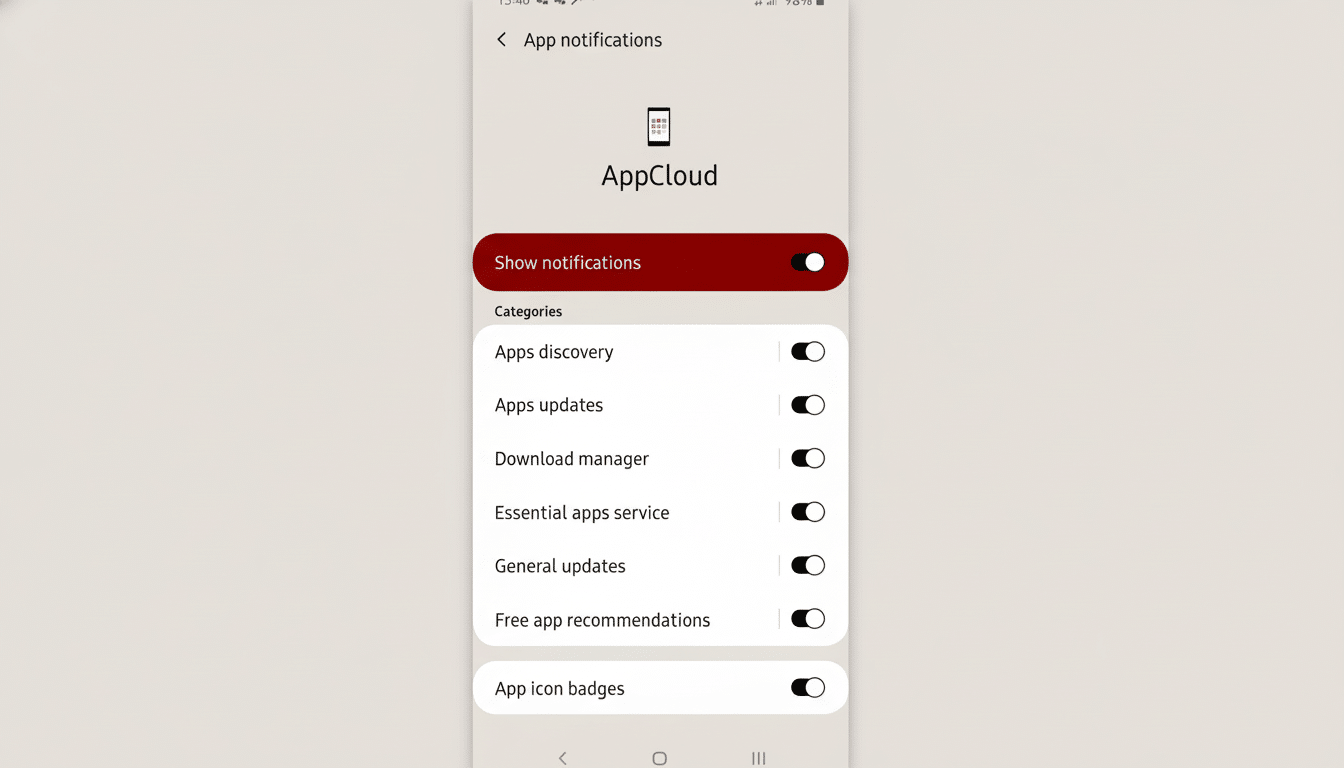A new round of focus is landing on Samsung over AppCloud, a pre-installed service available on some Galaxy A, M, and F phones that suggests third-party apps after users first set up and then update their phones. Viral posts on X say the software is “Israeli spyware” because it’s made by ironSource, an Israeli-founded company now owned by Unity. The accusation has spread widely online, but concrete evidence of clandestine surveillance is not evident.
What AppCloud Actually Does on Galaxy Devices
Here’s what AppCloud does: shows popular apps and promotions on budget and midrange Galaxy devices, usually just after you boot up or apply an update. The feature is not unusual on phones sold with skinny margins, where preloads and recommendation slots help fill in the gap for hardware costs. It is considered bloatware by a lot of its users due to its very nature—it is there all the time and can only, in some parts, be uninstalled, not from regular settings.

Samsung frames these recommendations as a convenience to users and a way to feature regionally relevant apps. In practice, the experience can be heavy‑handed, with notifications and prompts to buy that return if you don’t dive into settings to turn off marketing toggles. AppCloud comes pre-installed as a system app on some devices, so the uninstall route that most end users would use is blocked off.
Why the Spyware Allegation Went Viral Online
The latest flare‑up came in response to a widely circulated post by International Cyber Digest, which publishes news about hacking and digital espionage, on X that described AppCloud as “unremovable Israeli spyware.” The one post alone generated approximately 7.4 million impressions and linked to an open letter from SMEX, a Lebanon‑based digital rights organization, stating that AppCloud represents legal and ethical challenges in West Asia and North Africa. ironSource’s position as an intermediary, together with the app’s system-access privileges and lack of a direct uninstall capability, present an unacceptable risk.
ironSource is a familiar name in the adtech and app monetization world, having merged with Unity a couple of years ago. Critics cite ironSource’s legacy product “installCore,” which several anti‑malware developers have categorized as a potentially unwanted program on Windows and macOS due to unwanted software being packed along with it without clear consent. InstallCore is not related to AppCloud, and the tool is no longer active, but its legacy makes us more skeptical today.
What the Evidence Shows — and What It Doesn’t
Right now, there is no independently verified public evidence that AppCloud spies on its users, that incriminating data is being exfiltrated by it, or that apps are being installed silently without any user interaction. Reports and user videos usually illustrate recommendation flows, notifications and opt‑in screens—irritating to some, certainly, though hardly evidence of covert surveillance.
Two facts, however, keep the controversy going. For one, AppCloud is occasionally delivered as a system app—meaning it’s challenging for less savvy users to get rid of. Secondly, the app operates in a monetization system that is built on aggressive marketing. It’s the mix of system privileges and adtech incentives that sets off alarm bells for privacy advocates—however, Play Protect, Android’s on‑device scanning software, can continue to classify it as legit.
The stakes are not trivial. Market trackers including IDC and Canalys typically put Samsung at around 20% global smartphone share, while its A‑series represents the volume. That means even a sliver of the system, like a single system component, can reach tens of millions of devices that are spread across emerging global markets where protections for consumers vary dramatically.

Where AppCloud Ships, and Why It Stays Installed
AppCloud is generally found on lower‑priced phones or in specific territories where there are local carriers and distribution channels that will play the subsidy game. In such channels, preloads and post‑setup suggestions are ways to recoup expenses. That’s a harsh reality not limited to one brand—the same tactics from other Android OEMs are easily found—it’s just that Samsung’s scale makes it more apparent.
And for some of the countries in West Asia and North Africa, SMEX contends, procurement from an Israeli‑founded company carries added legal sensitivities. The picture is muddied by Unity’s ownership, but critics argue that provenance still matters in the round when assessing cross‑border data flows and compliance.
How Users Can Restrict or Remove It on Galaxy Phones
Without a holistic vendor toggle to uninstall entirely, there are practical steps you can take to reduce the friction. At setup, say no to the app’s suggested prompts you can refuse, and flick the marketing or “personalized services” switches off. In Settings, disable the notifications of AppCloud and related service recommendations, revoke unnecessary permissions, and restrict background data.
Advanced users can remove or disable the package via Android Debug Bridge on a computer; however, it might be easier for beginners to have those options toggled off by popular version updates (or reflashing factory images). As always, make sure you’ve backed up your data first, and keep in mind that removing core system components can void warranty or support in some markets.
What to Watch Next in the Ongoing AppCloud Debate
Privacy groups are arguing for an uninstall option that is clear or, at least, a permanent off switch for recommendations. Legislators or consumer agencies could also begin asking more stringent questions about data collection, consent flows, and whether system‑level placement is necessary for an ad recommendation engine.
The central tension is well‑known: cheap phones are paid for with bloatware, but dark patterns attack trust. Unless a third‑party audit or something new from Salesforce alters the facts, the AppCloud quarrel is less about proven spying and more about power, consent, and whether users can really master what lives on their phones.

